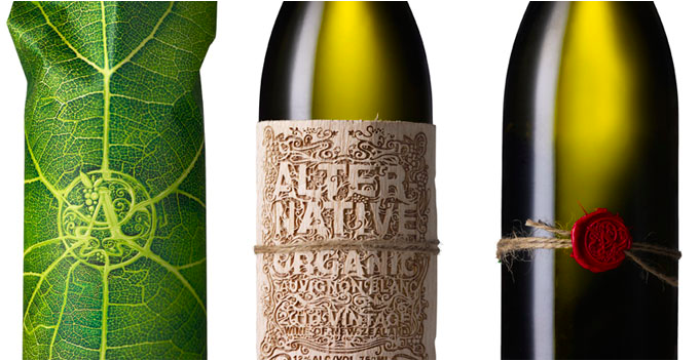In these naturally-focused times, the suggestion of natural white wine is attractive, and it’s no secret why. Simply words “biodiversity” has a wonderful ring to it. However, it’s not just a word. Practicing biodiversity in the vineyard implies using nature’s very own cycles and rhythms to promote development. It indicates picking all-natural choices over artificial or chemical ones to advertise the development of vines and the manufacturing of white wine.
Take, as an example, fertilizer. Winemakers that are much more harmonic with the land have actually been changing industrial plant foods like artificial chemicals with even more natural kinds, like manure. As manure breaks down, it launches nitrogen, which is an essential nutrient for yeast in a glass of wine fermentation. Contrast this with some non-organic manufacturers, who pump their wineries filled with nitrogen, which can result in awful, over-performing grapes.
However chemical-free farming practices go even additionally. Winemakers exercising biodiversity plant trees and various other plants to specifically motivate predatory bugs to occupy the areas around their vineyards. These killers– like wasps and, for instance– develop nests and pollinate wineries. They additionally eat the termites that would or else do damage to the acres under creeping plant. Making use of nature’s own ecosystem, the winemakers secure their vines without introducing any kind of exterior chemicals.
That’s the important things regarding natural wine: Organic winemakers try as finest they can to not intervene. Rather than acquiring cultured yeast, they allow the natural yeast in the air to start the fermentation process and they just monitor it, seeing to it all is going well. They additionally attempt not to add any type of additional sulfites to the winemaking process (sulfites are a preserving representative that naturally occurs in a vineyard). If the winery is licensed natural, the winemaker is not permitted to include any extra sulfites.
Yet sustainability surpasses the health and wellness of crops; it encompasses the employees. With natural viticultural practices, the employees in the vineyard are not subjected directly to possibly dangerous commercial products, and those commercial items are not draining off the vineyard floor and right into rivers or a neighbor’s home.
There are many other elements of the natural strategy to winemaking, however, these are the general ideas. For us as red wine lovers, drinking organic white wine gives us satisfaction. If you are someone that is worried concerning these things and wants as several natural items in your life as possible, after that for you, the organic white wine will be better than non-organic, or what is occasionally called traditional white wine.
The disadvantage to all this natural business is that when red wines are made in this manner, interest to detail is important for the top quality to come through. If there is even one slip-up in the biodiversity practices, nature takes control of and can overwhelm your winemaking, leaving you with a lot of work to do to get back to balance. And you need to do it naturally and not give in to the commercial fast solutions. Cleanliness in the winery is key in any winery yet especially in a natural one. Natural fermentation often takes longer than with cultured yeasts and the setting has to be perfect to make sure that no undesirable germs pollute winemaking vessels, jeopardizing completion result of the glass of wine’s flavor account.
If a winemaker is efficient being careful and concise in the natural or lasting setting, after that the red wine will be fantastic and provide you that poetry we’re all seeking. If one thing goes wrong and the winemaker is a bit careless, then the wonderful notes of smoke and tips of coffee will resort to wafts of band-aid and hints of computer mouse pelt.
However, even if a white wine is not certified does not indicate it is not natural. Winemakers, specifically in Europe, have actually been making use of natural practices for many years, yet do not have the moment or the cash to obtain accredited, which is pricey and takes at the very least 3 years.
Great winemakers understand their grapes and understand their land. They accord with the climate and strive to stabilize nature and technology to make great white wine. Nature is ruthless, and of all the liquors around, red wine is the most prone to her capriciousness. Good winemakers also recognize this and will normally do every little thing they can not tinker nature, however in some cases may have to trick her a bit right into thinking she has control.
Organic/Natural Wine
Organic a glass of wine manufacturing is the same as all natural farming because there should be no included chemicals or other synthetic chemicals.
There is, however, one large difference when comparing organic red wine with health food and that is making use of Sulphur-Dioxide. Sulfur-Dioxide enhances the shelf-life of the red wine and has a small impact on the taste of the wine.
In Europe and Canada, the legislation in wine manufacturing is that an organic a glass of wine may have added sulfites, whereas in the UNITED STATES the regulation is that red wines cannot have actually added sulfites. Thus, an organic red wine produced in the UNITED STATES will have an inadequate shelf-life contrasted to the Canadian and European equivalents.
However, what I found out is that individuals can be adverse the sulfites in red wines, so this is where the UNITED STATES organic wine enters into play.


